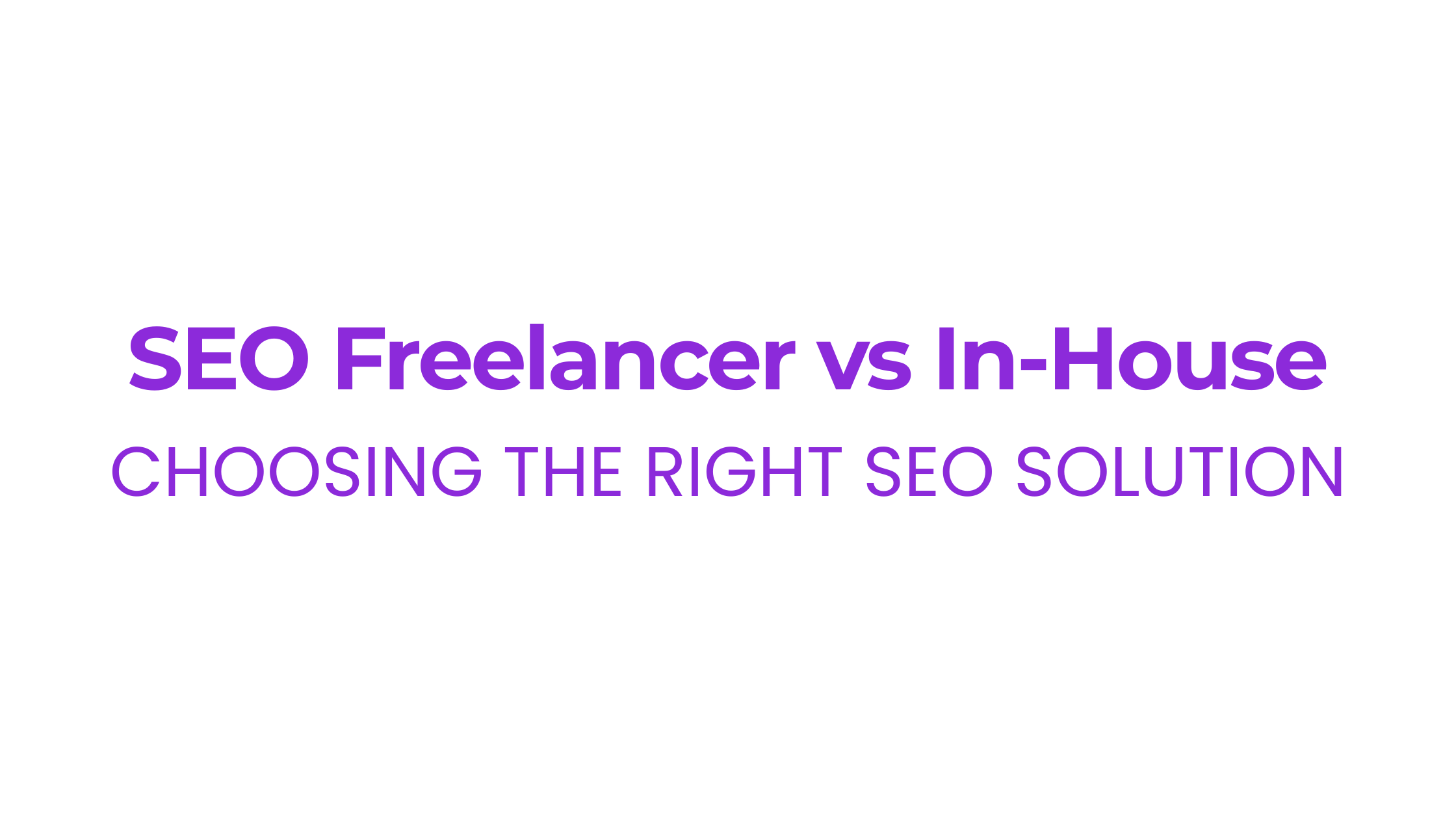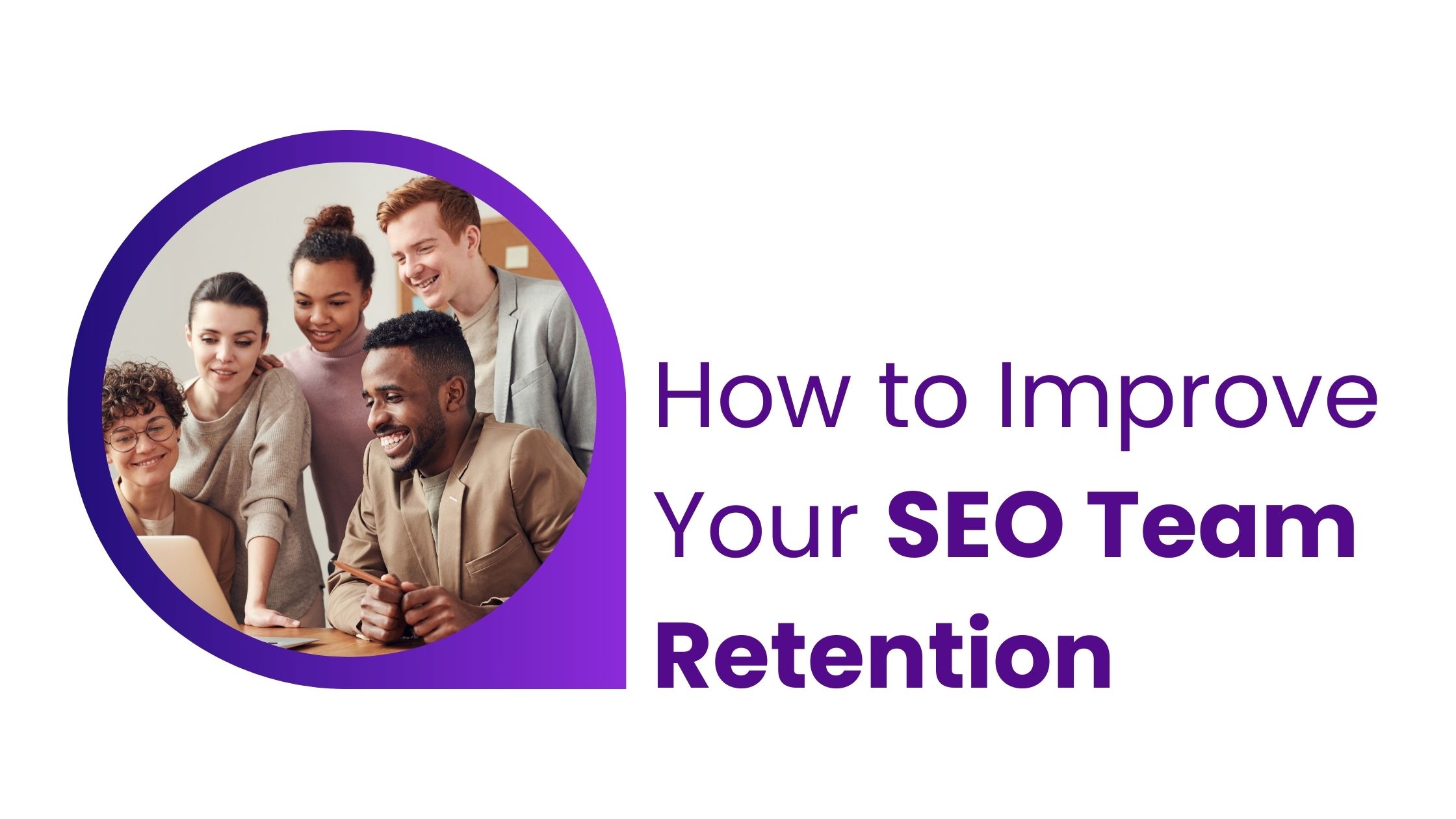One of the most prevalent of dilemmas SEO agencies are facing at the moment, is whether to niche down or become a generalist, especially when faced with the need to scale-up the business.
Either way, we know we can’t stay stagnant.
This is a major dilemma, especially for small-medium SEO agencies that are looking to scale and level-up.
On one hand, you could become a generalist agency, but then that poses the threats of getting swallowed whole by larger generalist corporation competitors. Not to mention, your brand presence will be almost non-existent, and your resources will constantly be under threat of being spread too thin.
So with that in mind, where would that then leave us?
With the only other logical answer of niching down in order to level up.
However, we can understand the universal feelings that may resonate with anyone faced with the option of niching down:
- Do I lose out on bigger opportunities?
- Larger jobs?
- Do I lose a whole clientele?
We understand the fears behind facing the decision to niche down.
But that’s why we’ve decided to delve a little deeper into the conversation and pull resources, strategies, approaches and things to consider, in this article.
Our aim?
By the end of this article, you will have a full overview of where to niche down into, where to look for guidance, and how exactly to take your first-step (if you’re ready to).
Find a niche or two and be great at it. It is far easier to repeat results for similar clients than to be an expert in every field imaginable.
–Joaby Parker, President of Cover3 Creative
Navigating the Double-Edged Sword of Niching Down
One of the more primary reasons that niching down an SEO agency is such a hot topic, is because it is such a difficult conversation to tackle–with pros and cons of equal weight. Naturally, if the approach towards niching down was tackled correctly, then the pros will weigh more in your favour than the cons, and vice versa if done incorrectly.
Starting off Strong: The Pros of Finding Your Niche
- Faster Market Traction:
When your team eventually select the niche that your agency would like to fall under, you will find that it’s much easier to create and refine your market strategy. Your team won’t be overwhelmed by the larger-scale audiences and feel as though the resources are being spread thin.
In turn, you will find it much easier to establish client retention and trust, therefore assisting you in creating case studies, sales and even capitalise on referrals.
You will be able to directly see and study your competitors, too.
2. Smoother Operations:
Without a niche, your team are most likely required to run through a new process from scratch with each client’s different markets. With this, comes new evaluations, research and market analysis, etc. to then put a strategy in place.
Your team will also be able to learn and use more terminology and ideas within that niche, allowing for further creative solutions and breakthroughs to take place.
3. Refined Target Marketing & Improved Leads to Conversion Ratio:
Having a target market that’s hyper-focused on an industry niche allows you to hone in on your market’s behaviour, such as browsing behaviour, geolocation, interests, work and their financial brackets, etc.
This means that the leads, although lower, are much more valuable. Plus there’s additional buy-in from their end, because they feel that your marketing strategies are much more personalised to them.
Sometimes, you don’t need to re-invent the wheel. You just need reshift your focus onto optimising the vehicle.
In other words, don’t focus on getting a ton of processes right for various niches. Rather, focus on refining one (your wheel), then move onto working to build momentum of closing those leads within your niche.
The Potential Cons of Niching Down

- Smaller Market: Although you will be experiencing a smaller market, it doesn’t mean it’s bad. The quality of leads and client loyalty will soon start to make-up for having to turn away clients who don’t fall directly into your niche.
- Market Over-Saturation: Your company may also experience market over-saturation and/or experiencing a limit on clients you can take-on, based on contracts with other clients.
You can still turn this to work in your favour by becoming an industry-leader within that niche, by scaling up clients through more creative and innovative ways.
- Expertise is Non-Negotiable: If you want to refine your agency into a niche, you will need to hire experts to join the team, if your team aren’t too familiar with the niche–or, alternatively, you will need to bring some form of training into the team to prep them.
Additionally, if you bring a specialised expert into your marketing team, those teammates might require a higher salary than that of a teammate in another niche (say, retail, for instance). Remember that niching down to a high profit niche doesn’t always necessarily equate directly to higher profits.

Dealing with Niche Fears 😰
Making the decision to re-route your SEO agency towards a niche can naturally come with extremely valid fears as a business leader–especially when assessing some of the potential cons that can occur if you don’t tackle niching down correctly.
And naturally the best way to overcome fears, are to first acknowledge them.
- Scared of Turning Down High Paying Clients 💸An incredibly valid fear to have–and one of the more common of hesitancies when faced with the decision of niching down.
The answer to this?
The decisions are still all in your control. When you’ve niched down, you’ve not committed to anything outside of your control. While, yes, you market yourself as a specific niche, there is nothing stopping your team from taking on a high paying client that you simply can’t refuse. If backed properly, and it doesn’t overstretch your team’s resources, then that is still a decision within your realm.The idea of niching down means that your agency aims to fall within a defined target market in order to become a specialist. That simply means you are becoming an authoritative agency in a specific niche, creating more effective marketing campaigns. That doesn’t mean you’ve completely excluded clients outside of your chosen niche, it just simply means that your team are choosing to become more specialised in a niche.
The decision is all up to you and your company resources.
Additionally, you can expand vertically from your chosen niche, when your agency is ready for growth.
2. What if I Pick the Wrong Niche? 🤔
Picking the wrong niche is also another valid concern of many hesitant agency owners. The only true way to know the answer to this, is to know your agency. Where your strengths are as a team, what your resources are like, and which niches best suit your team. Remember, you’re not committed to anyone or anything, and if you find that you are going down the wrong niche, then you are always able to reroute to another niche.
However, this is an unnecessary and avoidable situation if you follow the proper channels when deciding your niche–which we will be exploring later in this article.
But, My Agency Already Has Existing Clients?
Valid question.
How can you niche down an agency that already has existing clients? Losing pre-existing clients can be quite a scary task to undergo, especially if you’ve built long-term relationships with them.
The good news is that you’re not alone in this–there have been many agencies that have undergone the exact same scenario, and many in the future will do the same.
If you have found yourself in this circumstance, one of the most advisable of routes to take is to NOT pull everything down from your site and select a niche–as a newer SEO agency would do in this scenario.
Rather, look into utilising hyper-targeted marketing campaigns and outbound sales to target specific niches, and then use this approach in combination with your existing clients as case studies in those similar niches.
This way, you’re essentially working backwards to figure out the most common niches within your existing clients, and then using that knowledge to craft newer campaigns and outbounds to attract new leads. You will essentially need to explore how to strike a balance between market demand, competition and resources.
Considerations for Niching Down
Before we explore how to put a process in place in order to niche down, we first need to understand the core: the three types of niche agencies must consider when niching down.
Specialisation Niche Agencies
Agencies that aim to refine themselves down to a niche can first explore what type of service(s) they provide–this can cover any industry, but for our sake, we’re exploring the marketing industry.
Consider services such as the ones below (or others not mentioned) to determine what services within marketing, your agency offers:
- SEO
- Web Development
- Social Media
- PPC
- Video
Determining this niche will help you to position your agency based on its specific services, and how those services will suit pain points within the next category:
Vertical Niches
This niche category explores focusing on a specific industry you would like your agency’s services to assist. Some examples include:
- Legal
- Healthcare
- Hospitality
- Travel and Tourism
- Pet care
- Fashion
- Restaurants
This brings us to our last category:
Geography
When niching down, you will need to also consider serving locally based businesses by conducting market research to offer services such as:
- Optimising a Google Business Profile
- Google Local Services Ads
- Local SEO
- Embedding local schema markup on webpages
- Reputation management
Specialising in a geographic niche might also work in your favour when placing you between your competition. If you choose your city of operation within your business name, it could boost your search relevance further.
Choosing the Best Niche for Your Agency
Now, the exciting part begins.
After exploring wholly, how different agencies have conducted the niching down process, the pros and cons, and what to consider, you can now map out a plan to begin niching down your agency.
- Define your team’s passions, interests and strengths:
Naturally, you will want to lean towards niches that your team are passionate about and have skillsets/experience that can back this choice.Not only will it improve your USP in the beginning, but it will also create sustainable growth (through your team’s passion) in the future, to want to grow, problem-solve and endure tougher seasons.
2. Conduct initial market research:
– Utilise tools and resources for establishing niche markets. You can even source feedback from potential prospects or existing clients in order to gather data on the market.
Exploring methods such as online surveys, focus groups, reaching out to local businesses, interactive engagement through social media or even one-on-one conversations with clients can help fast-track gathering data.
In addition to this, you can also make use of Google Keyword Planner to identify problems in your niche and study competitors, Google Trends to track keyword trends and volumes as well as monitor industry trends and identify new opportunities, and Google Marketplace to discover tools that will optimise your agency’s website and assist in gathering potential clients and more customers.
– Identify your ideal customer through defining your ideal customer profile (ICP): you can then use this as a reference point for all content marketing, strategies, campaigns and outbound.
It is important to note that you will need to reflect back on and re-assess your ICP as time goes, as your ICP will evolve over time (naturally) and so will the marketing side of things.
To help you determine this, here are a few questions you can explore when determining your clients:
– Within this niche, who is in charge of making decisions that directly affect/relate to my business?
– What do the demographics of these clients look like (education, finances, job title, experience)?
– What would their specific pain points include?
– What would their long-term goals and business plans entail?– Choose a profitable niche: Although somewhat self-explanatory, you will need to explore your agency margins and profitability for the sake of scaling up.
Aim to draft out a financial plan to see whether your agency’s budget fits the plan, and how to adjust it accordingly in order to open-up new opportunities, as well as become a sustainable business model. You will need to look at the financial forecast of the niche, the financial trends, etc. in order to correctly identify where your agency sits and where your agency would like to go.
– Test & review your niche: this essentially comes down to ensuring that your niche, business model, and marketing strategy is lucrative. An easy way to do this is through your marketing strategy and lead magnets. You can create a useful resource to offer to the market, and judging from their response, you can gather a fair idea of interested prospects.
3. Researching your competition is the next step.
You’ll want to aim to ask questions exploring their direct differences and similarities to your agency, such as:
– What are their rates?
– Where are they located?
– Are they a direct competitor?
– What are others saying about them (reviews)?
– What are their rates and packages?
– Who are some of their clients?
– What is their team structure like?You can also search your competitors’ websites for further information on their approaches to the market and niche. In doing so, you may identify some opportunities for growth (or lack of) within three factors:
– There are no other marketing agencies ranking with their same keywords: this either means that there’s room for opportunity for your agency, or that there’s not a lot of market within this niche.
– Other smaller sites are ranking for these keywords, suggesting their is some market for the niche, with low competition.
– There are a lot of well-known and larger sites already ranking for those keywords, which equates to high competition and an oversaturated market. If this is the case, you will need to dig deeper into a sub-niche, such as vertical + specialisation.4. Identify a point of differentiation.
This is incredibly important when competing against other niche agencies as your lines of business, business models and marketing strategies could easily cross over.
A few ways to counteract this is by conducting a SWOT analysis on your your competition, identify and utilise any marketing opportunities that your competitor hasn’t yet made use of, invest in the right people (A-players are assets in smaller agencies), and provide correct training to your team in order for them to become experts and specialised in the niche of choice.
5. Make use of your existing network to gather referrals–word-of-mouth travels like wildfire, especially when you’ve tapped into a niche at the right angle, and are networking with the right people.
Utilise this approach not only when you launch your new niche agency, but also throughout the growth of your career. Referrals are a powerful tool for any business to use.
6. Find the fine-balance when niching down.
Don’t niche too broadly, nor too narrowly. Niche smartly. You will want to always keep an eye on trends in and around your niche so that you’re always aware of potential opportunities, or, even threats. This will also greatly help your business plan, when you’re considering the economic forecasts of the business–ie. potential dry seasons.



